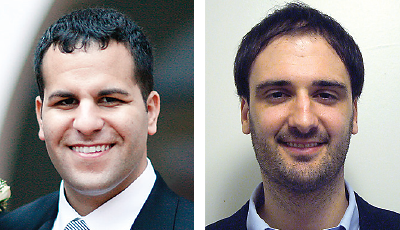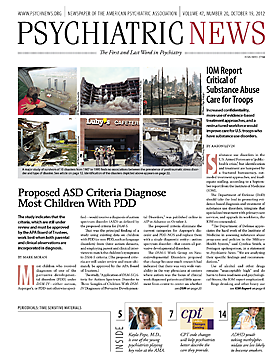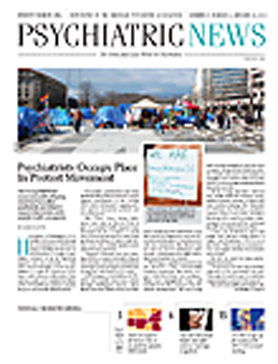Over the last six years there has generally been a downward trend in U.S. medical school seniors choosing to pursue a career in psychiatry. Psychiatry residents can, however, play a vital role in inspiring young medical students to gain a greater interest in and appreciation for psychiatry.
Medical students should learn about the wide range of opportunities and benefits that a career in psychiatry provides in terms of intellectual pursuits, a sense of community, and quality of life. As psychiatry residents, we should provide support and mentorship to medical students and make efforts to dispel common myths and negative preconceived notions about our field.
This column highlights some of the rich learning opportunities that exist for medical students outside of the standard clerkship. Residents should be aware of these training opportunities and encourage medical students to broaden their scope of knowledge.
One the easiest ways for medical students to gain a greater understanding of psychiatry is by enrolling in electives and subinternships in psychiatry subspecialties and in different practice settings. While many departments offer clinical electives in child, forensic, addiction, geriatric, consultation-liaison, and community psychiatry, some departments offer specific didactic and research electives on topics ranging from psychoanalysis to bioethics to neurobiological research.
There are also clinical electives that medical students can pursue in unique settings. As second-year medical students, we had the opportunity to participate in the Summer Institute for Medical Students at the Betty Ford Center. It was a remarkable experience that gave us the opportunity to learn about the disease of chemical dependence and its treatment through the 12-step model. There are also many opportunities to study psychiatry abroad that can be pursued through universities and organizations such as the AMA.
Most professional psychiatric organizations also offer unique travel awards to conferences. APA, for example, offers awards for medical students to attend its conferences. Medical students can also work with APA to develop unique electives in areas such as HIV and administrative psychiatry and to form mentoring relationships. The American Academy of Addiction Psychiatry and the American Academy of Child and Adolescent Psychiatry offer a plethora of awards as well.
One of the most important professional organizations for a medical student to join is PsychSIGN, a group for medical students interested in psychiatry. PsychSIGN has many local and international meetings, and it is a great way for medical students to network with like-minded peers.
Medical students can also become involved in academic research and writing projects that hone important communication and analytic skills. Journals such as the American Journal of Psychiatry Residents’ Journal encourage manuscript submissions from medical students.
Learning the techniques and spirit of motivational interviewing can be an asset to medical students. These skills strengthen the therapeutic alliance and potentially decrease physician burnout. They can also facilitate positive change in patients’ lives. Brief trainings in this technique open to medical students are offered in cities around the country. Also, residents can point medical students to a wonderful Web site
www.motivationalinterviewing.org and encourage them to incorporate motivational interviewing into their clinical work.
Medical school can be a time of intense pressure and stress for students, often leading to anxiety, depression, and even impairment in functioning. The psychiatry resident should also be mindful of this and create space for an open, nonjudgmental, and supportive dialogue with medical students while maintaining clear boundaries and professional limits. Providing psychoeducation to medical students is crucial. When medical students have a positive experience with treatment for their own mental health issues, they are more likely to appreciate and understand the importance of psychiatric work. This may even lead more students to consider psychiatric careers themselves.
In sum, psychiatry residents should strive to do more than just teach medical students basic principles of psychiatry and supervise their work on inpatient units. Residents have an opportunity to make a profound impact on medical students; professional relationships can be forged and cultivated long after the psychiatric clerkship ends.

Michael Ascher, M.D., is a fourth-year resident at Beth Israel Medical Center. Jonathan Avery, M.D., is a fourth-year resident and chief resident at Weill Cornell Medical College. Both are Ginsburg Fellows in the Group for the Advancement of Psychiatry.


